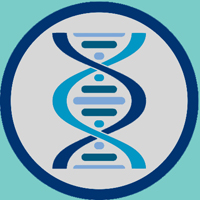Why Sharing Cancer Big Data is Key to Personalized Medicine
- by 7wData

This week’s Cancer Moonshot Summit generated industry-wide excitement and plenty of good ideas about how to attack the multifaceted scourge of Cancer, which will affect up to forty percent of people at some point during their lives.
Stressing the urgency of making timely progress for the 1500 patients who receive a new cancer diagnosis every day, Vice President Joe Biden made an impassioned plea for the healthcare industry to work together, innovate together, and share their knowledge in pursuit of their common goals.
His words garnered a standing ovation from a room packed with healthcare stakeholders who have already invested millions of dollars and countless hours into doing just that – and preparing to do much more.
The precision medicine community has long since recognized that sharing big data, including clinical records, genomic sequencing data, community-level health indicators, and research results, will be critical to making progress against cancer, neurodegenerative diseases, inherited conditions, and expensive chronic diseases like diabetes.
In conjunction with the Summit, the White House announced nearly forty public and private personalized medicine initiatives that focus on breaking down data siloes, exchanging research, sharing computing power, and expanding data access to patients, researchers, caregivers, and clinicians.
Leaders from participants in the Precision Medicine Initiative and Cancer Moonshot also penned a series of blog posts explaining the critical importance of creating an open, accessible big data environment for personalized medicine researchers at academic institutions, provider facilities, and other partner organizations.
“Why is data sharing important? Because cancer is complex,” said Kenneth C. Anderson, MD, President-elect of the American Society of Hematology (ASH). Anderson specializes in multiple myeloma, a blood cancer with treatment options that hinge on the genetic variances of each and every patient.
“We’re learning so much about cancer, and applying these insights to drug development has been incredibly fruitful,” he continued. “Now we have treatments that are specifically targeted to patients’ genetic mutations. Not only are these treatments more effective — because they correct a specific mutation — they also minimize harmful side effects that we see with traditional total-body anticancer medicines.”
However, the continued development of these treatments cannot be sustained without a commitment to data sharing, he added. “That’s why I’m working with ASH to lead a data sharing project that starts with multiple myeloma, but that we hope will serve as an example of what can be done with all types of cancers.”
ASH is bringing together experts from the Multiple Myeloma Research Foundation, the Mayo Clinic, the Dana Farber Cancer Institute, and the University of Arkansas Myeloma Institutes, as well as international participants from several European nations, to architect a data sharing platform that will allow researchers to work within a scalable, collaborative environment to interpret and experiment with big data.
Similar efforts, targeted to specific diseases or research arenas, are springing up across the industry as public and private organizations seek the technical tools to serve as a springboard for creating widely adopted best practices.
The Patient-Centered Outcomes Research Institute (PCORI) has shown a steady commitment to facilitating this work through its PCORnet initiative, a network of thirty-three designated research bastions at clinical and academic centers across the nation.
“To support the Cancer Moonshot, PCORnet commits to enhancing its capacity to conduct large-scale research on cancer more rapidly and more efficiently, expanding the scope and improving the quality of the networks’ clinical data related to cancer care,” stated Dr.
[Social9_Share class=”s9-widget-wrapper”]
Upcoming Events
From Text to Value: Pairing Text Analytics and Generative AI
21 May 2024
5 PM CET – 6 PM CET
Read More


